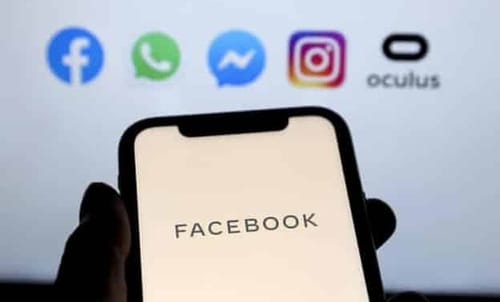 |
| Facebook has been accused of monopoly since at least 2011 |
The US Federal Trade Commission has filed a revised antitrust complaint against Facebook accusing Facebook of violating federal antitrust laws by acquiring WhatsApp and Instagram.
The new lawsuit is a more detailed version of the claim that the court dismissed in June due to insufficient evidence.
The complaint alleges that the company has had a dominant share of the US market for personal social networking services since 2011, citing daily and monthly time and active user metrics.
These metrics, individually and collectively, provide important evidence of the strength of a company's enduring monopoly on social media services.
The company must provide a legal response to the complaint by October 4. A Facebook Twitter account described the FTC's latest complaint as baseless and wrote: There is no valid statement that Facebook is a monopoly and that has not changed.
The US Federal Trade Commission filed its first lawsuit in December 2020, accusing Facebook of acquiring a rival network to give it the right to monopolize social media services in the United States.
But in June, the court dismissed the lawsuit, ruling that the commission had not provided sufficient evidence to show that Facebook had monopolized the power of social media. However, the court gave the committee the option to file an amended complaint to resolve these issues.
In addition to the amended complaint, the FTC also made it clear that President Lina Khan continues to play an active role in the matter.
In July, the company asked Lina Khan to prevent her from taking legal action against the agency due to her legal knowledge.
The company said at the time: “Throughout her career, President Khan has publicly concluded that Facebook has violated antitrust laws.”
The new complaint provides a tougher definition of the market that social networks and personal businesses monopolize.
Facebook has been accused of monopoly since at least 2011
The new complaint clearly distinguishes Facebook from services like TikTok, which offer content but do not offer a clear social space.
The FTC's definition also excludes services such as Twitter and Reddit that share information among communities with specific interests. But don't focus on connecting with your friends and family.
The complaint cited internal communications to demonstrate that the company understands the difference. Although the specific content of the message has been reviewed in the public version of the document, this is still the case.
The complaint concluded that the company had been a major provider of these services since at least 2011. In addition, Facebook and Instagram are the two largest personal social networking services in the United States.
As defined by the Federal Trade Commission, Snapchat is the only significant competitor in this field.
The complaints are largely based on the troubling measures taken to determine the company's dominant position. Mainly monthly active users, daily active users and time spent on the site.
The lawsuit makes clear that the company's success after the Cambridge Analytica scandal shows how difficult it is to underestimate its dominance.
The complaint alleges that Facebook could harm users by reducing product quality without losing significant engagement, demonstrating that it has market power.
